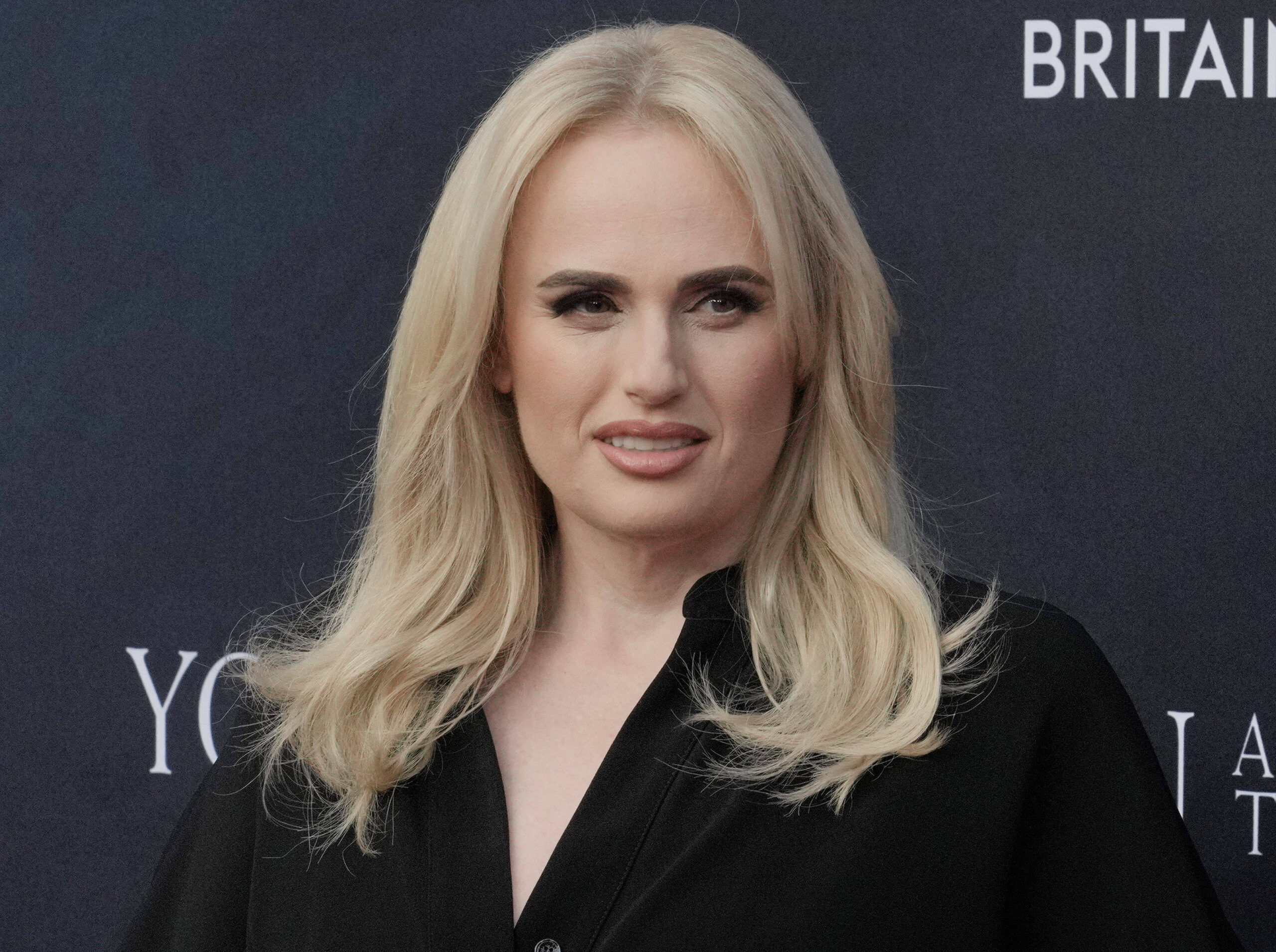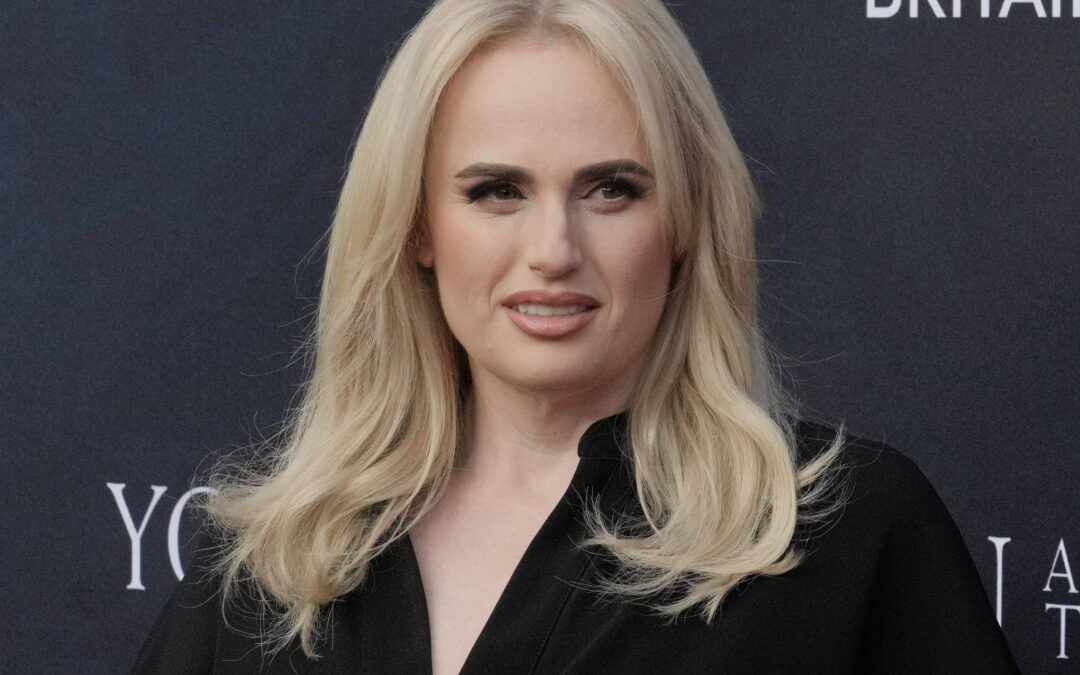Rebel Wilson proves that Hollywood’s size bias is as problematic as ever
The actress says she’s been ‘un-typecast’ since losing weight.
Words by Nikki Peach

Most people will know Rebel Wilson from when she burst onto the scene in Bridesmaids in 2011 with her turn as Brynn – Annie’s (Kristen Wiig) awkward English landlord with impeccable comedic timing. Who could forget her one-liner: ‘At first I did not know it was your diary; I thought it was a very sad, handwritten book.’
By 2012, Wilson was locked in as a comedy mainstay, appearing in What to Expect When You’re Expecting, Struck by Lightning and Bachelorette. In the first film, she played an eerily similar role to Brynn – a socially awkward clothes shop employee whose appearance was often an accessory to the comedy. In the second, Wilson performed another off-beat character, Malorie, who spends a portion of the film following the cast around with a video camera and asking, ‘can I get a close up of your bicep?’. The gist of Bachelorette is not all that different either. It’s about a group of ‘troubled women’ who reunite for their old high school friend Becky’s (Wilson) wedding, someone they don’t seem to have any respect for, and one of the biggest jokes comes from the fact Katie (Isla Fisher) and Regan (Kirsten Dunst) can both fit into Becky’s wedding dress.
If that isn’t enough to make you wince with the benefit of hindsight, we haven’t even mentioned the Pitch Perfect franchise yet, where Wilson played the not so subtle ‘Fat Amy’. Arguably the piece de resistance of crude 2010s typecasting. Speaking to Alex Cooper on the ‘Call Her Daddy’ podcast in 2023, Wilson revealed that her weight was written into her contract, and she was prohibited from losing weight until the final film wrapped in 2017. ‘I did wait until Pitch Perfect seemed like it was over,’ she said. ‘I couldn’t lose a massive amount of weight because it was in the contracts for that movie.’
In recent years, however, Wilson has lost a noticeable amount of weight. In 2020, she lost more than 80lbs (36kg), attributing it to walking and a high-protein diet. The actress revealed she decided to lose weight after her fertility doctor said it would increase chance of success for in vitro fertilisation (IVF) treatment. ‘It really hit me hard because I was living this fantastic bigger life and didn’t have any serious diseases or anything,’ she said. ‘But then I have this stranger saying, “Look at you, you’re not healthy.”’ She welcomed a baby girl, Royce Lillian, with her partner Ramona Agruma via surrogate in November 2022.
True to form, the industry that reduced her worth to her size took issue with her decision to lose weight at first. Wilson says she received a lot of ‘push back’ from her team in Hollywood, who could not understand her motivation given that she was ‘earning millions of dollars playing the funny fat girl’.
True to form again, they started to treat her differently once she’d lost weight. During a recent appearance on SiriusXM’s Ben +1 show, Wilson was candid about the fact she’s been offered ‘more serious roles’ now that she’s a smaller size. ‘I did this British Indie movie that was really serious about traumatic brain injury, and then now I’m playing Lady Capulet,’ as she put it. The musical drama, Juliet & Romeo, starring Jamie Ward and Clara Rugaard, Jason Isaacs and Rupert Everett, hit cinemas on 9 May. ‘I think I kind of untypecast myself by losing weight. I mean, I loved being the bigger, funny girl, loved playing Fat Amy in the Pitch Perfect movies. It was so cool and that still is me in so many respects, but I guess people… started to see me a bit differently.’
‘I think I kind of untypecast myself by losing weight’ – Rebel Wilson
Although those formative characters occupy a fond place in Wilson’s memory, she also admitted she never had any intention of being known as a comedic actress – let alone typecast as a ‘funny, fat’ one. ‘I wanted to be like Dame Judi Dench and be really serious,’ she added. ‘It’s just I had something that people would like to laugh at. And then Nicole Kidman gave me this scholarship to come to America and specialise in comedy, and so that’s what I did. And then when I came to Hollywood, I was just the full comedy girl. But now it’s kind of like going back to my roots as an actress and doing some serious stuff.’
Even if more serious roles have become a byproduct of Wilson’s weight loss, it’s hardly surprising that she wanted to lose weight. The fact there is an abundance of quotes from Wilson about her weight throughout her career is case in point – Hollywood pedals an unhealthy preoccupation with people’s size and treats it as paramount. Her talent as an actress, spanning all genres both ‘serious’ and comedic, has nothing to do with her size – but that’s not what the industry tells us.
Wilson is clearly at a point in her career where she feels like she is being taken seriously, perhaps for the first time, but discourse around her weight persists. If anything, it’s admirable that she seems compelled to acknowledge this shift in opportunities is not a coincidence.
Her comments only prove what we already know – that Hollywood is not a fair game and there is, and has always been, a systemic bias against people who do not fit the mainstream mould. It would be great to say that 13 years after Pitch Perfect came out we are moving in the right direction, but is that true? We might not see characters called ‘Fat Amy’ in mainstream comedies anymore, but many of those same tropes remain.
The uproar about Nicola Coughlan and Luke Newton’s ‘mixed-weight romance’ in Bridgerton last year attempted to prove that the world is ‘still not ready’ to see a love story between people of different body types. Virgie Tovar, a ‘leading expert on weight bias’, wrote for Forbes that the casting ‘defied romance plotline convention’, whatever that means. Fortunately, praise for the romantic pairing and support for Coughlan drowned out the negativity, but its stubborn existence leaves a sour taste.
Then there’s the new era of super-skinniness ushered in by the stealthy rise of weight-loss jabs like Ozempic and Wegovy. The drugs, intended to treat people with type 2 diabetes, have essentially taken over Hollywood with everyone from Chelsea Handler, Simon Cowell, Meghan Trainor, Elon Musk and Kelly Osbourne openly prescribed, and they are creeping their way the mainstream too. Even Wilson has admitted to using Ozempic to help maintain her weight loss. An NPR article titled, ‘How Ozempic went from diabetes medicine to blockbuster diet drug’ proves how rapid and insidious these weight loss methods are becoming. Sadly, when it comes to body type representation, it almost feels as though we are regressing.
Wilson is right to be honest about how her size has shaped the trajectory of her career. It’s as true now as it was then. Let’s hope for all our sakes that one day it finally changes.
Photo: IMAGO

